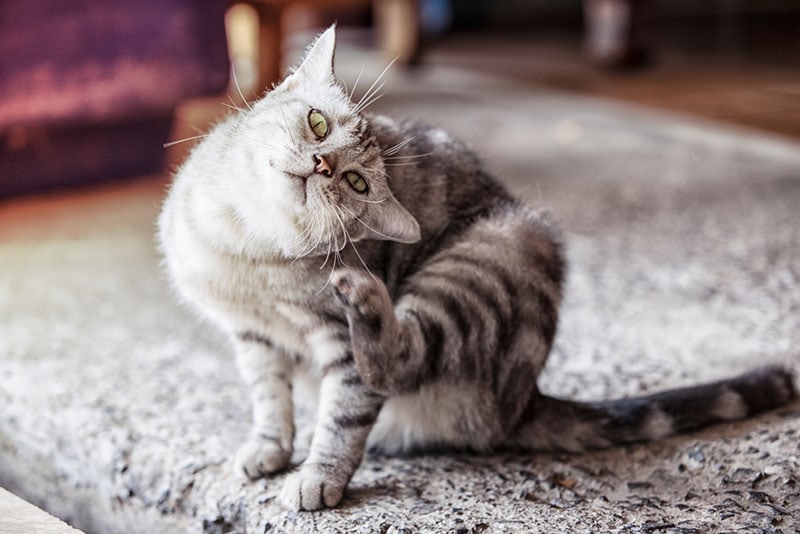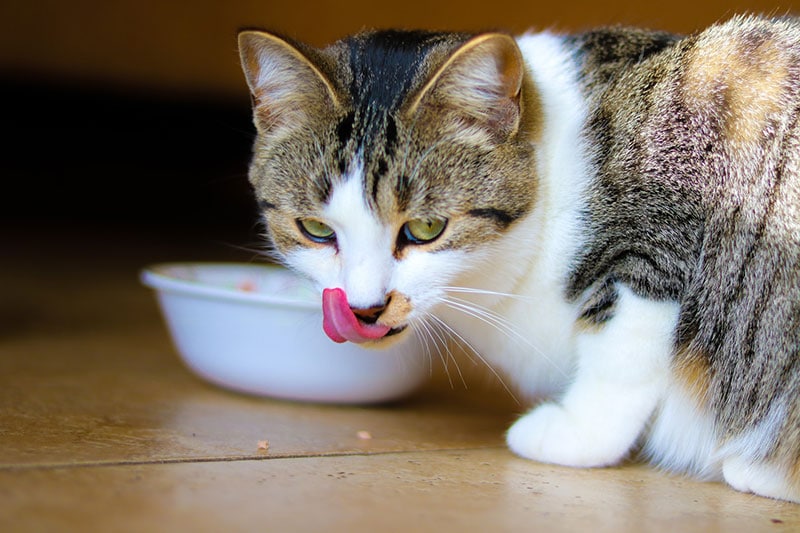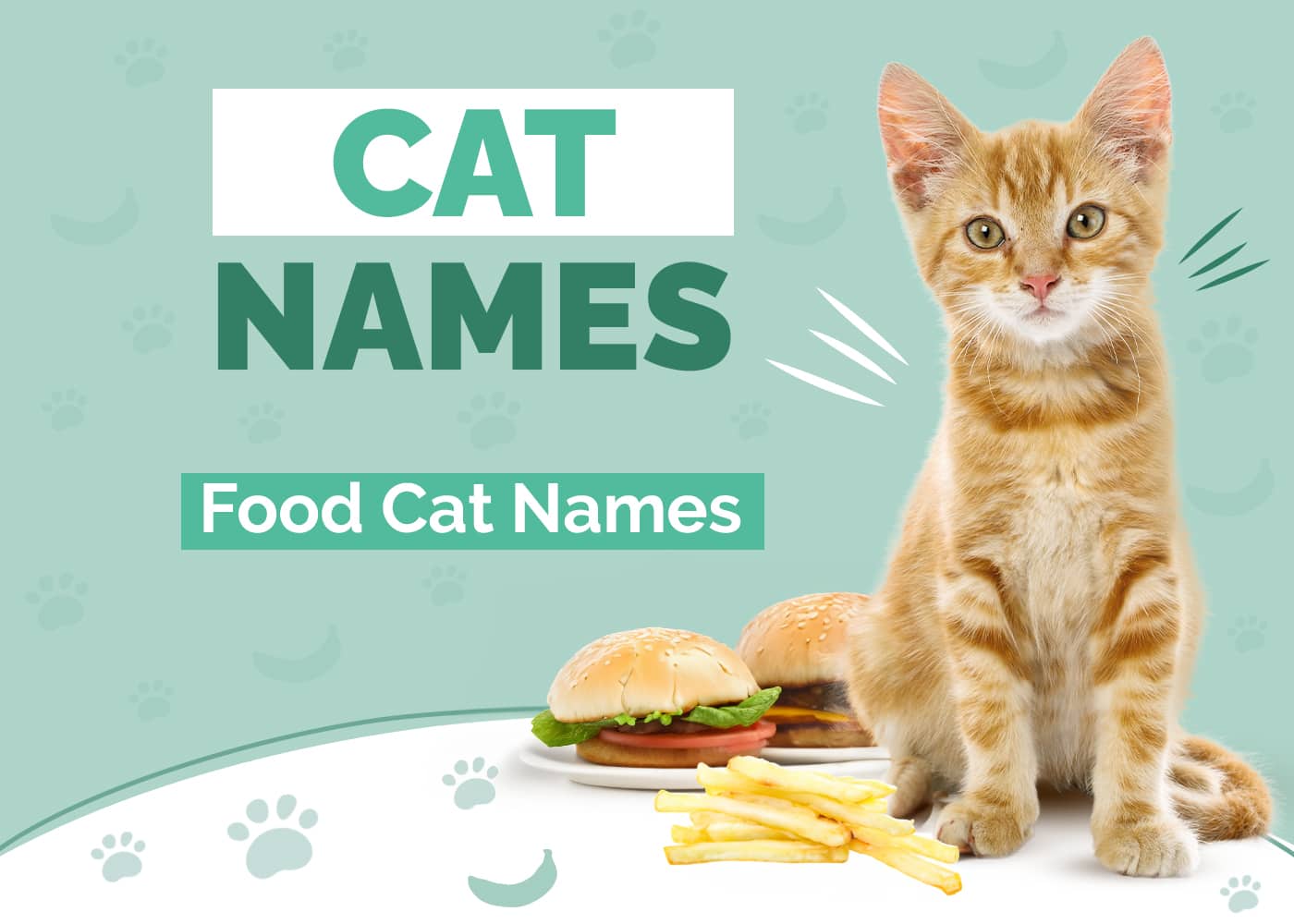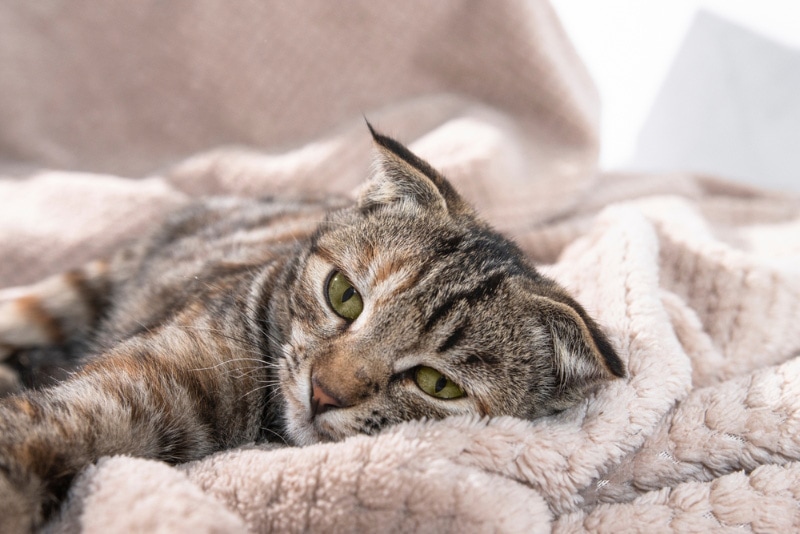Can Cats Eat Chicken Wings? Vet Approved Facts & FAQ
By Ed Malaker
Updated on

Click to Skip Ahead
Cats can be picky eaters that don’t usually beg for their owners for food like dogs do, but there are a few items that they might come looking for, including tuna and chicken. One popular food that many people might wonder about is chicken wings.
Fortunately, a plain chicken wing that has been stripped of the bones and skin is a great treat that your cat will likely enjoy. However, that doesn’t mean you should make chicken wings a regular part of your pet’s diet. Read on to learn the pros and cons of feeding this food to felines and the best way to serve it, so you can see if it’s right for your cat.
Nutritional Benefits of Chicken Wings
Protein
Chicken wings are a good source of essential high-quality protein, which is important for a cat’s overall health. Protein provides the necessary amino acids that support muscle maintenance, growth, repair and it provides energy.

Taurine
Taurine is a crucial amino acid for cats, and you find it primarily in meats, including chicken. Taurine is essential for maintaining healthy eyes, a strong heart, and proper digestion.
Vitamins
Chicken contains various beneficial vitamins for cats, including B vitamins like B6 and niacin, which play essential roles in metabolism and overall health.
Minerals
Chicken is a source of essential minerals like calcium, phosphorus, and selenium, which are helpful for bone health, immune function, and various physiological processes.

Fats
While it’s important to moderate fat intake, some fat is needed to provide energy and help maintain healthy skin and a glossy coat.
Hydration
Chicken meat has a high moisture content, which can help contribute to your cat’s overall hydration, especially if they are not drinking enough water.
Potential Dangers of Feeding Chicken to Cats
Bones
Chicken wings contain small, brittle bones that pose a choking hazard for cats, especially after you cook them. These bones may splinter easily, leading to potential injuries in the cat’s mouth, throat, or digestive tract. Therefore, removing all bones from a chicken wing before offering it to your cat is better.

Digestive Issues
Chicken wings can be high in fat, especially if they still have the skin. Excessive fat consumption can lead to digestive upset, including diarrhea or vomiting. Removing excess fat before feeding is important as well as providing chicken in moderation.
Extra fat in a cat’s diet can also contribute to weight gain if given long-term. Weight gain in cats can then lead to other health issues including obesity, diabetes, and joint issues.
Foodborne Illnesses
Raw or undercooked chicken can contain dangerous bacteria, including Salmonella and Campylobacter. This can be more of a problem in older cats or those with underlying health conditions that may affect the immune system. You must cook the chicken thoroughly before giving it to your cat.
Allergies
Some cats may have allergies or sensitivities to chicken. Watch them closely for adverse reactions, such as itching, digestive issues, or skin problems.

Unbalanced Diet
Having chicken wings be a significant part of your cat’s meals without considering their overall nutritional needs can lead to an imbalanced diet. Cats require balanced and nutritionally complete cat food to meet their dietary requirements. Choose a commercial cat food with real meat like chicken or turkey listed as the first ingredient, and only use chicken wings as occasional treats.
Salt and Seasonings
Many human-prepared chicken wings contain salt and other seasonings unsuitable for cats. Chicken wings may also have a sauce that can include sugar, garlic, and other dangerous ingredients. Therefore, you should only feed your cat plain wings without the sauce and seasonings and that have not been cooked in oil or butter.
How Should I Feed Chicken Wings to My Cat?
- Always cook the chicken wings thoroughly before offering them to your cat to kill harmful bacteria.
- Remove all bones from the chicken wing before feeding the meat to your cat, as these can splinter and pose a choking hazard or cause internal injuries.
- Remove the skin, which can be high in fat.
- Do not add any seasonings, sauces, spices, or marinades to the chicken.
- Cut the chicken into small, bite-sized pieces to make it easier for your cat to eat and reduce the risk of choking.
- Treat chicken wings as occasional treats or supplements to your cat’s diet. Too many might throw off their balanced nutrition and lead to digestive issues.
- Keep a close eye on them for any signs of allergies or sensitivities, such as itching, diarrhea, or vomiting.
- Ensure that the chicken is fresh and stored properly to avoid bacterial contamination. Never feed spoiled or expired chicken to your cat.
- If you have any concerns about your cat’s diet or if your cat has specific dietary needs or health issues, consult with your veterinarian before introducing new foods to them.
Frequently Asked Questions
Can I Feed Chicken Wings to My Cat Every Day?
Feeding your cat chicken wings or any human food item every day is not advisable. Cats require commercial cat food to meet all their dietary needs. Chicken should be only an occasional treat.

What Should I Do If My Cat Has an Adverse Reaction to Chicken Wings?
If your cat shows any signs of allergies or intolerances, such as vomiting, diarrhea, itching, or other unusual signs after eating a chicken wing, discontinue feeding it to them, and consult your veterinarian.
Can I Feed My Cat Chicken Wings From a Restaurant or Takeout?
Feeding restaurant or takeout chicken wings to your cat is not recommended as these are likely to be seasoned, cooked with oils or spices, or have other ingredients that could harm your cat. Therefore, it’s safer to prepare plain chicken at home.

Can I Give My Cat Other Parts of the Chicken, Such as Thighs or Breasts?
You can offer your cat other parts of the chicken, like thighs or breasts, if they are boneless, skinless, plain, and well-cooked.
My Cat Stole a Chicken Wing From My Plate, What Should I Do?
If your cat manages to grab a chicken wing from your plate, monitor them for any adverse reactions. If they only ate a small amount of the meat, it’s unlikely to cause harm, but watch for signs of digestive upset. Call the vet if you notice any signs of distress or if you think that they ate a bone.
Summary
A chicken wing can be a great treat for your cat, providing several important nutrients, like protein, taurine, and vitamins. However, too many wings might throw off their balanced diet and lead to digestive issues, so keep the portions small, and only provide a few pieces of the meat every few days. It’s best to cook the chicken wing without seasonings, remove the bones, and cut it into small pieces before serving it to your cat.
See also:
- Can Cats Eat Chicken Feet? Vet Approved Facts & FAQ
- Can Cats Eat Chicken Skin? Vet-Approved Facts and FAQ
Featured Image Credit: Mironov Vladimir, Shutterstock













